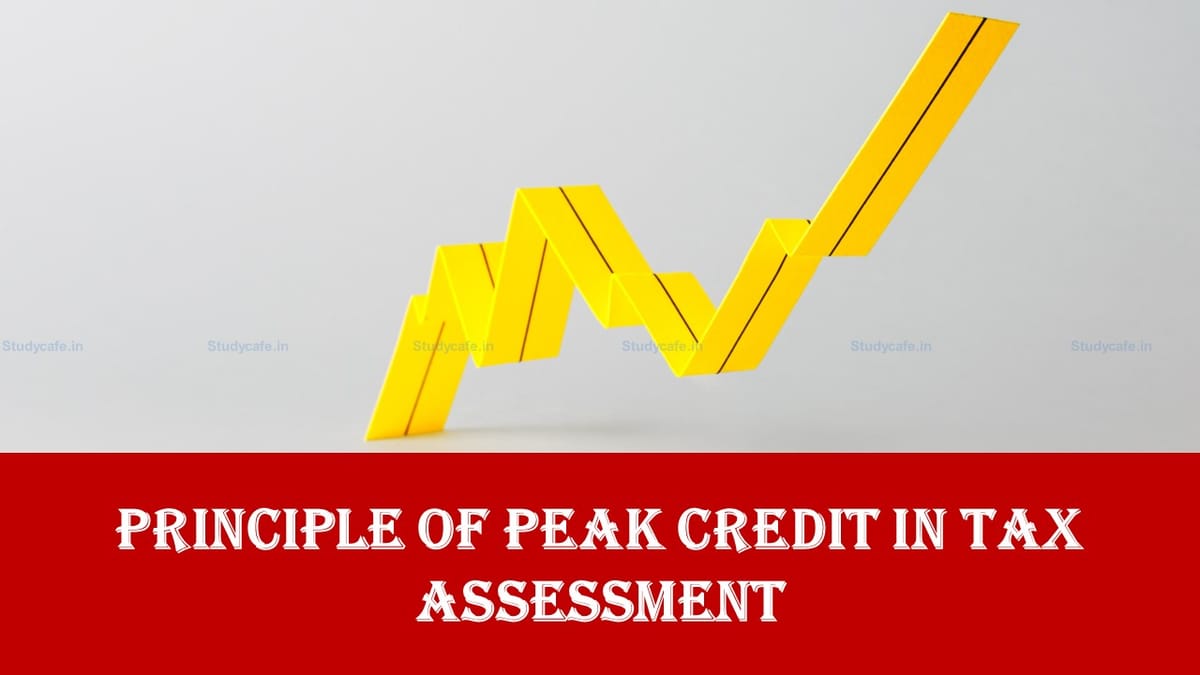Entire Cash deposit cannot be treated as income without considering withdrawal: ITAT explains Principle of peak credit
CA Pratibha Goyal | Jun 3, 2022 |

Entire Cash deposit cannot be treated as income without considering withdrawal: ITAT explains Principle of peak credit
Admittedly, there was cash aggregating to Rs. 11,54,350/- deposited in the bank account of the assessee which was treated as income from undisclosed sources by the lower authorities.
The assessee before the leaned CIT-A explained the amount of cash deposit represents the amount deposited by the customer to whom vehicle parts were sold and from this activity he earned only commission income and repaid the amount to the actual supplier after retaining commission. The explanation of the assessee was rejected by the learned CIT-A on the reasoning that the detail of the person to whom vehicle parts were sold and the person who supplied parts was not submitted.
Further, the assessee was only acting as an agent in the transaction then why the customer deposited the purchase consideration to his bank account, was not explained. At the time of the hearing, the learned counsel has not brought any material on record suggesting that the assessee was actually carrying out commission agency business as contended by him. Accordingly, the Income Tax Appellate Tribunal (ITAT) rejected this contention of the assessee.
Be that as it may be, on perusal of the bank statement, placed on record, ITAT noted that there were regular deposits of money in cash which was withdrawn in cash. Thus the amount withdrawn from the bank was also available with the assessee for depositing the same in cash. Accordingly, the amount of cash deposited cannot be treated as income of the assessee without considering the corresponding withdrawal. In such a situation the principles of peak credit theory should be adopted for determining the income of the assessee. The concept of the peak credit proceeds on the fundamental premise that the money deposited and/or withdrawn from the assessee’s bank account belongs to the assessee, or in respect of which ownership vests in the assessee.
In the given facts and circumstances, there is no allegation of the revenue that the money withdrawn from the bank has either been utilized for incurring the expenses or for the purpose of the investments. Accordingly, the working of the peak credit works out at ₹1,49,727 which has not been challenged by the revenue.
Thus ITAT was of the view that in the given facts and circumstances, at the most the peak balance of ₹ 1,49,727.00 can be brought to tax under the peak credit theory. However, ITAT noted that the assessee has declared an income of ₹ 1,02,710/- which is less than the amount determined under peak credit theory.
Accordingly, it was directed that authorities should determine the income of the assessee at ₹1,49,727 only. In other words, there will be an addition of Rs. 47,017/- (Rs. 1,49,727 – 1,02,710/-) to the total income of the assessee which is over and above the income already disclosed by the assessee in the income tax return.
In case of any Doubt regarding Membership you can mail us at [email protected]
Join Studycafe's WhatsApp Group or Telegram Channel for Latest Updates on Government Job, Sarkari Naukri, Private Jobs, Income Tax, GST, Companies Act, Judgements and CA, CS, ICWA, and MUCH MORE!"